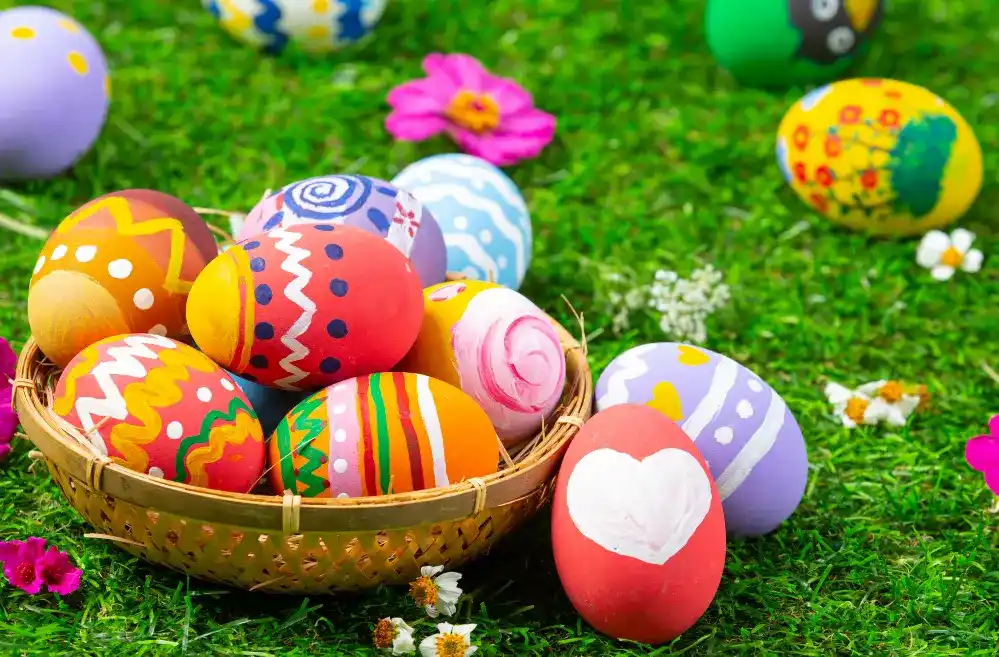LOGIC.co.id – Every year when Easter arrives, eggs become an inseparable symbol of the celebration. From chocolate eggs and colorful decorated eggs to egg hunts in various parts of the world, the tradition is rich and widely observed. But have you ever wondered why Easter is associated with eggs? What is the history behind it, and how did this tradition develop? Let’s explore the interesting facts and deeper meaning behind the egg as a symbol in this meaningful celebration.
The Meaning of Eggs in Easter: A Symbol of New Life
In Christian tradition, Easter celebrates the resurrection of Jesus Christ from the dead, symbolizing new life and hope. Eggs, with their simple appearance yet containing life within, are a powerful symbol to illustrate this concept. When an egg hatches and a chick emerges, it reflects the themes of resurrection and renewal—central to the Easter story.
However, the significance of eggs is not limited to Christian symbolism. Long before Christianity spread, eggs held a special place in various ancient cultures, especially during spring—coinciding with Easter.
The History of Eggs and Easter: From Pagan to Christian Traditions
To understand the connection between eggs and Easter, we must look back to times before Christianity became the dominant religion in Europe. Many historians believe that the egg tradition originated from spring festivals celebrated by pagan societies, such as the festival of Eostre, the Anglo-Saxon goddess of fertility. The English word “Easter” is believed to be derived from “Eostre,” whose celebrations included eggs as symbols of fertility and nature’s rebirth after winter.
When Christianity began spreading throughout Europe in the early centuries AD, the Church often adapted local traditions to ease conversions. Eggs, already part of springtime celebrations, were adopted and given new meanings aligned with Christian teachings. During Lent—the 40-day fasting period before Easter—Christians were once prohibited from consuming eggs. By the time Easter arrived, the eggs collected during Lent became special treats, marking the end of fasting and becoming symbols of joy.
Egg Decorating Traditions: From the Middle Ages to the Modern Era
One of the most well-known Easter traditions is decorating eggs. This practice is believed to have started in the Middle Ages in Eastern Europe, especially in areas now known as Poland and Ukraine. Eggs were dyed red to symbolize the blood of Christ and were later decorated with intricate patterns known as pysanka. This tradition spread across Europe and eventually the world.
In 13th-century England, King Edward I reportedly ordered hundreds of eggs to be coated in gold and distributed to his subjects as Easter gifts. Meanwhile, in the United States, the Easter egg hunt tradition became popular in the 19th century, especially after being introduced by European immigrants. Today, children around the world enjoy searching for hidden eggs as a fun part of Easter celebrations.
Chocolate Eggs: A Sweet Modern Innovation
What about chocolate eggs, now so popular? This is a relatively modern development. In the 19th century, chocolate companies in Europe, such as Cadbury in the UK, began producing chocolate eggs as a sweet alternative for Easter celebrations. The idea was instantly embraced, and chocolate eggs have since become an integral part of modern Easter festivities, particularly in Western countries.
Interesting Facts: Eggs in Other Cultures
Interestingly, eggs hold special meaning beyond Easter. In Jewish culture, a boiled egg is part of the Seder plate during Passover, often coinciding with Easter. The egg here symbolizes the cycle of life and sacrifice. In Persian tradition, Nowruz or Persian New Year also features dyed eggs to welcome spring. This shows that eggs have universal significance that transcends cultures and religions.
Why Do Eggs Remain Relevant at Easter?
To this day, eggs remain an Easter icon because of their meaningful simplicity. Whether as a symbol of new life, an adapted ancient tradition, or a sweet treat in the form of chocolate, eggs connect the past with the present. Traditions like egg decorating and egg hunts also bring joy, making Easter a beloved celebration for both children and adults.
So the next time you see an Easter egg—be it a decorated egg, a boiled egg, or a chocolate one—remember the long history and deep meaning behind it, preserved through the centuries. Happy Easter and may your celebration be filled with joy!

